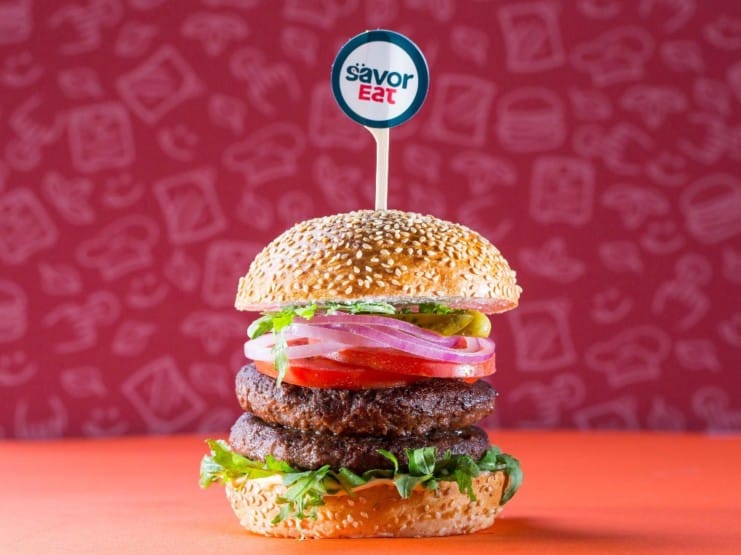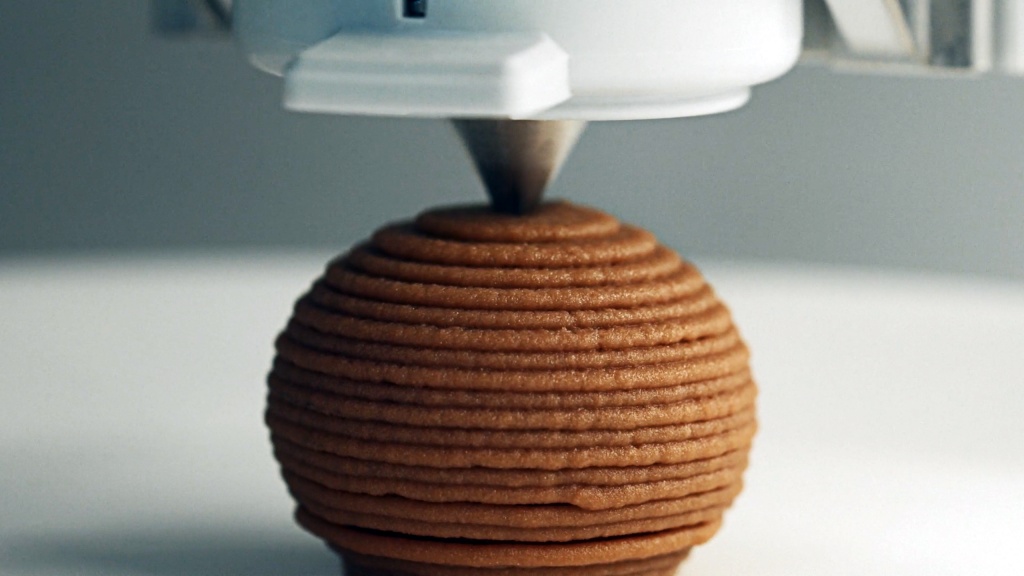SavorEat, an Israel-based 3D printed meat alternative producer, has launched its latest offering – kosher gluten-free, vegan, allergen-free pork patties.
The new products include vegan turkey hamburgers and expand the range of SavorEat’s vegan “beef burgers” coming soon to the USA.
SavorEat CEO and co-founder Racheli Vizman said the new products were created exclusively for the US market. In a recent interview, Vizman stated, “The new products were developed to adapt to SavorEat’s primary market – the US. The many tests we conducted show that these two products are trendy among American target audiences. Therefore, we also developed them in preparation for the first commercial activity expect to begin in the US by the end of this year as part of our collaboration with Sodexo.”
The collaboration will result in SavorEat products being introduced at US universities and colleges.
The name of Vizman’s fellow co-founder, Prof. Oded Shoseyov, will be familiar to regular readers. Shoseyov is the founder and CTO Director at CollPlant. CollPlant has worked with United Therapeutics to 3D bioprint rhCollagen for lung transplants a partnership that was later extended to produce kidneys, and more recently has entered into agreements with 3D Systems and CELLINK.
Speaking about the collaboration with Sodexo in August 2021, Vizman said, “Sodexo’s choice, as a market leader, to partner with us – is a vote of confidence in SavorEat’s solution and in its unique value proposition. I am convinced that Sodexo’s expertise in the international catering market and particularly North America will significantly contribute to the development and acceleration of the penetration rate of our products in the international market, with an emphasis on the US market.”

The market’s appetite for future meat
In December 2020, SavorEat announced it had raised $13 million from an IPO on the Tel Aviv Stock Exchange; at floatation, SavorEats was valued at $51.2 million. Presently the food tech enterprise trades around the dollar mark and is valued at $22.7 million.
SavorEat’s products incorporate 3D printing, the use of plant-based components in cartridges, and the unique, plant-based fiber that holds the ingredients, resulting in the appearance of meat. The meat-like materials are formed from cellulose fibers and were created in the lab of Prof. Oded Shoseyov and Prof. Ido Braslevsky, researchers at the Hebrew University in Jerusalem’s Yissum Research Development Company. They collaborated with Vizman, an entrepreneur, to launch SavorEat in 2018.
The company, based in Rehovot, is focused on sustainability goals, is playing a larger position in the food tech sector’s alternative protein subsector, and has a clear message about climate change.
“At SavorEat, we are passionate about offsetting carbon emissions and reducing waste, which is why we created a product that can do both,” Vizman stated this week in a statement.
“By expanding into other plant-based meats, we aim to provide greater variety and customization, to empower the planet to eat differently, with more healthy and sustainable options to reduce ecological impact,” she said.
“Personalized food and medicine is the next big thing, and I wanted to create better solutions” that are superior to those currently offered, she’s declared. Her goal includes the creation of a robot chef/3D printer to “become the next microwave, a microwave that actually makes the food, in people’s home, easily, more cost-efficiently and everyone can eat how they want.”
SavorEat’s patties consist of peas and other plant-based proteins, including coconut and sunflower fats. Proteins made from plants, in contrast, produce significantly less carbon dioxide (GHG) emitters, SavorEat said. The company cited a report from 2022 which stated that if industry of plant-based proteins grow to make up 11 percent of total food consumption in 2035 “the world could see a reduction equal to decarbonizing 95 percent of the aviation industry.”
Plant-based 3D printed meat alternatives
SavorEat is among several Israeli companies that are developing products made from plant proteins, such as Plantish which is a manufacturer of vegan 3D printed seafood alternatives. Plantish raised $12.45 million in March 2022, while Redefine Meat closed a $135 financing round in January 2022.
Enterprises including Novameat and MeaTech are active in developing this market. While IKEA has used the lure of 3D printed “meat” balls as part of a recruitment campaign.

Subscribe to the 3D Printing Industry newsletter for the latest news in additive manufacturing. You can also stay connected by following us on Twitter, liking us on Facebook, and tuning into the 3D Printing Industry YouTube Channel.
Looking for a career in additive manufacturing? Visit 3D Printing Jobs for a selection of roles in the industry.
Featured image shows a vegan burger from the SavorEat robot chef. Photo via SavorEat.



